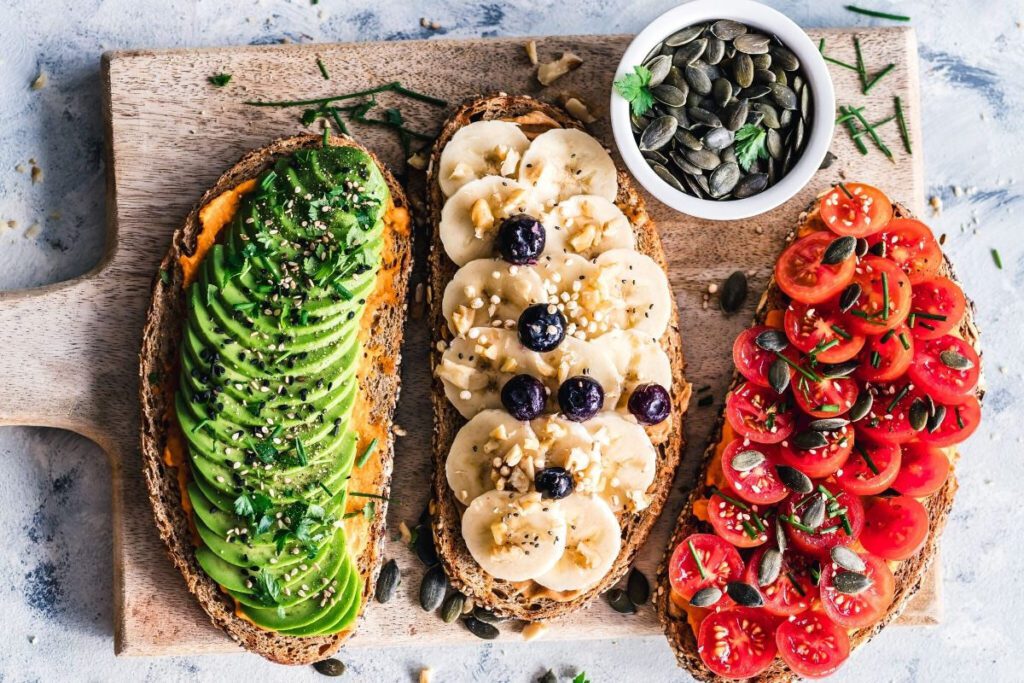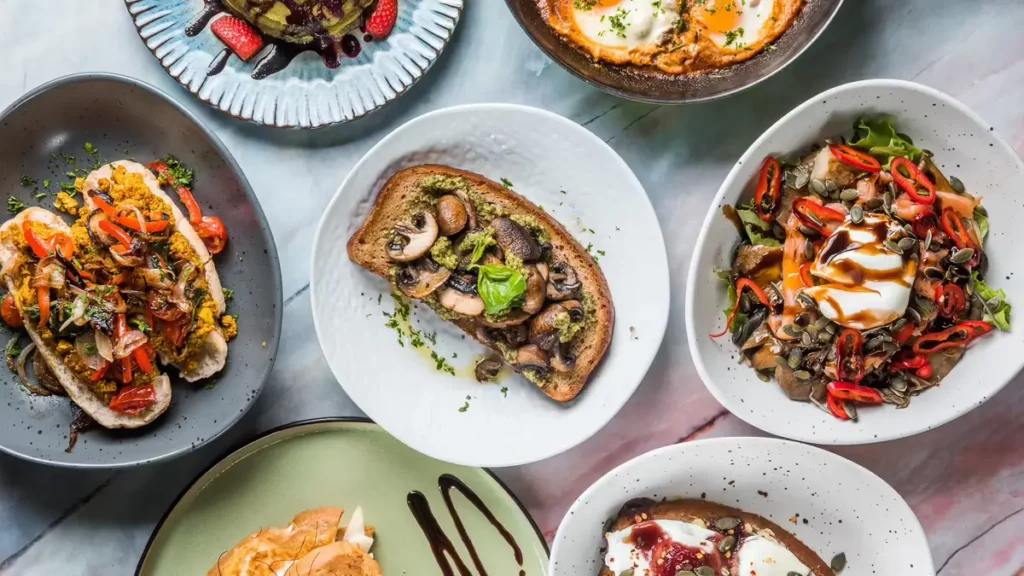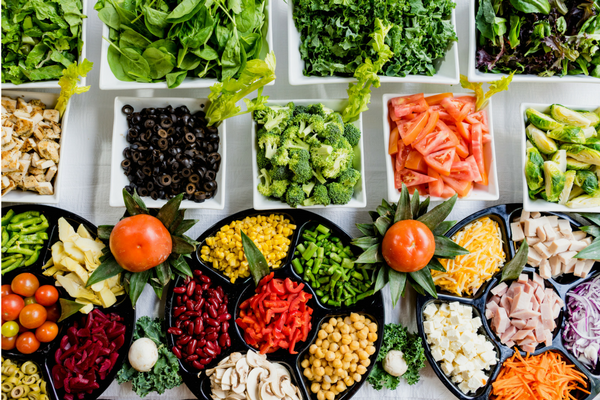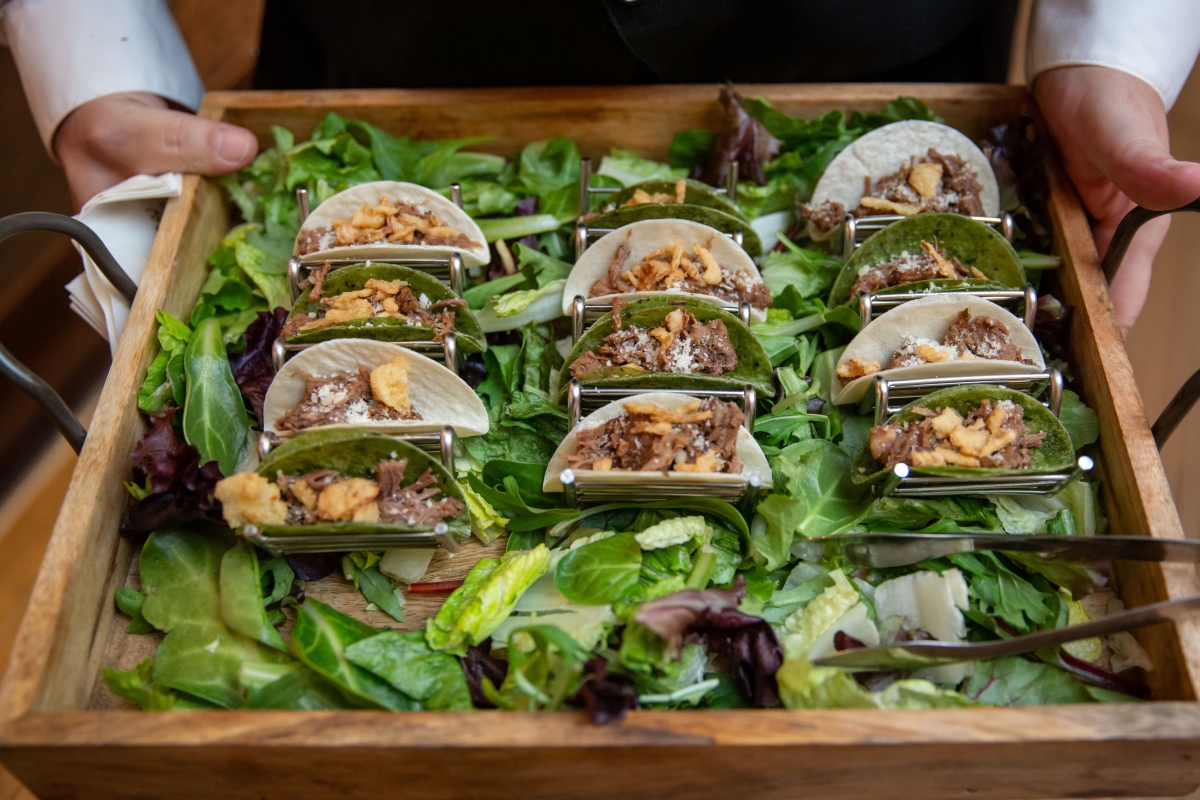Gluten is a type of protein found in grains such as wheat, barley, and rye. For some people, consuming gluten can cause adverse reactions such as digestive issues, skin irritation, and fatigue. These individuals have either celiac disease, a genetic autoimmune disorder, or non-celiac gluten sensitivity. As a result, they must follow a strict gluten-free diet to manage their condition and avoid potential health problems.

When it comes to catering, providing gluten-free options is not just a preference, but a necessity for some individuals. It is crucial to ensure that everyone can safely and comfortably enjoy the food being served. This is especially important for events such as corporate meetings, weddings, and parties where guests may have different dietary restrictions.
We will discuss the importance of providing gluten-free catering options and provide tips for catering to gluten-free diets. We will also provide a comprehensive list of gluten free catering options for different events, including breakfast, lunch, and dinner. By targeting keywords such as gluten-free catering, catering for gluten-free diets, and gluten-free catering options, we hope to provide valuable information for those seeking to accommodate individuals with gluten sensitivities.
Understanding Gluten-Free Catering
As the awareness of gluten intolerance grows, so does the demand for gluten-free catering options. Catering to gluten-free diets means offering food that does not contain gluten, a protein found in wheat, barley, and rye. Providing gluten-free catering options is essential to meet the needs of individuals with celiac disease or non-celiac gluten sensitivity.
What it means to be gluten-free
Being gluten-free means avoiding foods that contain gluten. For individuals with celiac disease, even small amounts of gluten can trigger an immune response that damages the lining of the small intestine. For those with non-celiac gluten sensitivity, consuming gluten can cause a range of symptoms, including bloating, diarrhea, and fatigue. As such, individuals with gluten sensitivities must follow a strict gluten-free diet to manage their condition and avoid health complications.
The difference between gluten-free and wheat-free
It is important to note that being wheat-free is not the same as being gluten-free. While wheat is one of the most common sources of gluten, gluten can also be found in other grains, such as barley and rye. Therefore, simply avoiding wheat is not sufficient for those with gluten sensitivities. Gluten-free catering must ensure that all ingredients and foods are free from gluten sources.
The benefits of providing gluten-free catering options
Providing gluten-free catering options offers several benefits, including:
- Meeting dietary needs: Catering to gluten free diets allows individuals with celiac disease or gluten sensitivity to enjoy a meal without worrying about the potential consequences of consuming gluten.
- Expanding customer base: Offering gluten free options can attract customers who may have previously avoided catering services due to their dietary needs.
- Demonstrating inclusivity: Providing gluten-free options demonstrates inclusivity and a commitment to meeting the diverse needs of guests.
The different types of events that may require gluten-free catering
Any event that involves food may require gluten free catering options. Events that are more likely to require gluten-free catering include weddings, corporate events, conferences, and private parties. At these events, guests may have different dietary restrictions and it is essential to provide a variety of catering options to accommodate everyone.
Catering to gluten-free diets requires a thorough understanding of gluten and the dietary needs of individuals with gluten sensitivities. Providing gluten-free catering options can expand a catering service’s customer base, demonstrate inclusivity, and meet the dietary needs of guests. It is crucial to provide gluten-free options for any event that involves food to ensure all guests can enjoy a safe and delicious meal.

Catering to Gluten-Free Diets
As gluten-free diets become increasingly popular, catering companies need to be aware of the steps they can take to accommodate these diets. Below are some important considerations for providing gluten-free catering options.
Accommodating Gluten Free Diets
- Communication with the Customer: The first step in catering to a gluten free diet is to communicate with the customer. This will ensure that the catering company understands the customer’s needs and can provide appropriate options.
- Gluten Free Menu: A separate gluten-free menu can be created, highlighting the dishes that are gluten-free. This makes it easier for customers to choose dishes that are safe for them to eat.
- Ingredient Selection: Caterers should carefully select ingredients that are gluten-free. This includes checking ingredient labels and ensuring that there is no cross-contamination with gluten-containing ingredients.
Cross-Contamination Prevention
- Separate Preparation Areas: It is important to have a separate preparation area for gluten-free dishes to prevent cross-contamination.
- Separate Utensils and Equipment: Utensils and equipment used for gluten-free dishes should be separate from those used for gluten-containing dishes.
- Staff Training: Staff should be trained on how to handle gluten-free food and prevent cross-contamination.
Gluten-Free Alternatives
- Wheat Flour Alternatives: There are several gluten-free alternatives to wheat flour, such as almond flour, coconut flour, and chickpea flour.
- Breadcrumb Alternatives: Gluten-free breadcrumbs can be made from ground nuts, rice crackers, or corn flakes.
Creating a Tasty Gluten-Free Menu
- Experiment with Different Flours: Using alternative flours can add interesting flavors and textures to dishes. Experimenting with different flours can lead to unique and delicious dishes.
- Focus on Fresh Ingredients: Using fresh, seasonal ingredients can make gluten free dishes more flavorful and satisfying.
- Offer Variety: Offering a variety of gluten-free options can keep customers interested and satisfied.
Catering companies that are able to provide tasty and satisfying gluten free options can tap into a growing market of customers with dietary restrictions. By taking the necessary steps to accommodate gluten-free diets and prevent cross-contamination, catering companies can provide a safe and enjoyable dining experience for all customers.
Gluten Free Catering Options
When planning an event that requires gluten-free catering, it’s important to have a variety of options that cater to different dietary needs and preferences. Here are some gluten-free catering options that can be included in breakfast, lunch, and dinner menus:
Breakfast Options
- Gluten free pastries: muffins, scones, and cinnamon rolls made with gluten-free flour blends
- Yogurt parfaits: layers of gluten-free granola, fresh fruit, and yogurt
- Fruit platters: sliced seasonal fruit, such as melons, berries, and citrus
Lunch Options
- Gluten free sandwiches: made with gluten-free bread, such as whole-grain or sourdough, and filled with a variety of gluten-free proteins and veggies, such as roasted turkey, avocado, and hummus
- Salads: mixed greens topped with gluten-free proteins, such as grilled chicken or tofu, and gluten-free dressings, such as balsamic vinaigrette or lemon-tahini
- Grain bowls: a customizable option that can include gluten-free grains, such as quinoa or brown rice, and a variety of veggies and proteins, such as roasted sweet potato, black beans, and grilled shrimp
Dinner Options
- Gluten-free entrees: such as grilled salmon, chicken piccata made with gluten-free flour, or beef tenderloin with gluten-free gravy
- Sides: roasted seasonal vegetables, gluten-free grains, such as wild rice or polenta, or gluten-free rolls with herb butter
- Desserts: flourless chocolate cake, fruit tarts with gluten-free crusts, or gluten-free cookies
Examples of Catering to Specific Dietary Preferences
- Vegan: roasted vegetable quinoa bowls, black bean and avocado tacos made with corn tortillas, or vegan sushi rolls made with gluten-free rice
- Vegetarian: Caprese skewers with gluten-free crackers, spinach, and feta stuffed mushrooms, or roasted vegetable lasagna made with gluten-free noodles
By providing a variety of gluten-free options that cater to different dietary needs and preferences, catering companies can ensure that all guests can enjoy their meals without worrying about gluten intolerance. When planning gluten free catering, it’s also important to consider the preparation and serving process to avoid cross-contamination.

Finding Gluten Free Catering Services
When it comes to finding gluten free catering services, it can be challenging to know where to start. Here are some tips to help you find a catering company that can provide delicious and safe gluten-free options for your next event.
- Online search tools and directories One of the easiest ways to find gluten-free catering services in your area is to search online. Many websites and directories specialize in listing gluten-free businesses, including catering services. These websites often have search filters that allow you to specify your location and the type of service you’re looking for. Some popular websites to try include Find Me Gluten Free, Gluten-Free Philly, and Gluten Free Catering Near Me.
- Referrals and recommendations from friends and colleagues Another excellent way to find gluten-free catering services is to ask for referrals and recommendations from people you know. If you have friends or colleagues who follow a gluten-free diet, they may have experience with catering companies that offer gluten-free options. This way, you can hear firsthand about their experiences and ensure that the company can meet your needs.
- Checking with local gluten-free support groups or organizations Many local gluten-free support groups and organizations maintain lists of businesses that offer gluten-free options, including catering services. Contacting these groups or checking their websites can be a great way to find catering companies in your area that cater to gluten-free diets.
- Ask questions and be clear about your needs When contacting catering services, it’s crucial to ask questions and be clear about your dietary needs. Make sure the catering company understands what a gluten-free diet entails, and ask about their experience in catering to gluten-free diets. It’s also essential to ask about their cross-contamination prevention measures and whether they have separate preparation areas for gluten-free items.
Finding a catering company that can provide gluten-free options can seem daunting, but with the right tools and resources, it’s possible to find a company that can cater to your dietary needs. By utilizing online directories, seeking referrals and recommendations, and checking with local support groups, you can increase your chances of finding a catering service that offers delicious and safe gluten-free options for your next event.
You can view our Gluten-Free Catering Menu by clicking here.
At Tasty Table Catering, it is our duty to take care of our clients and ensure that the food ordered is delicious and safe for all. In food service catering, it is important to make sure we recognize and appreciate the dietary needs of our customers and their employees with food allergies and sensitivities to provide not just healthy, but also safe and all-inclusive catering options. It is important for any professional to understand that fostering a safe and inclusive workplace is good business, and in some cases also a law.
Here at Tasty Table Catering, we offer exquisite gluten free catering options in the Philadelphia Main Line serving corporates, private events, weddings, holidays, and special events.
Our menu items are customizable to your company’s needs so enjoy.

These are some of our favorite delicious gluten-free catering options you can enjoy in your workplace during your next office event:
Teriyaki Salmon with Potatoes and Roasted Veggies
Moroccan Salad with Hummus, Cucumbers and Almonds
Harvest Salad with Crispy Chickpeas
Cauliflower Fried Rice with Portabella Steak
Asian Spicy Tofu Stir Fry over Rice with Szechuan Veggies
Blackened Mahi Mahi Wrap
Butternut Squad Risotto with Leeks
Apricot Salmon with Red Bliss Potatoes and Brussel Sprouts
Bacon Wrapped Scallops with Rice and Asparagus
We also offer vegan and vegetarian catering in the Philadelphia Main Line, please view our Vegan/Vegetarian Menu here.
Conclusion
Catering to individuals with gluten-free dietary needs is crucial for creating an inclusive and safe event. Understanding what it means to be gluten-free and the challenges it presents in catering is the first step in providing appropriate options. Catering companies can take steps to accommodate gluten-free diets by preventing cross-contamination, using alternative ingredients, and creating tasty and satisfying menus.
When seeking out gluten-free catering options, there are several resources available, such as online search tools, referrals from friends and colleagues, and local support groups or organizations. It’s important to ask questions and be clear about your needs when contacting catering services to ensure that the options provided are safe and suitable.
Providing a variety of gluten-free catering options for events, including breakfast, lunch, dinner, and dessert options, is essential. Offering options for specific dietary preferences such as vegan and vegetarian is also important.
In summary, gluten-free catering is essential for inclusivity and safety in events. By taking the necessary steps to accommodate gluten-free dietary needs, we can ensure that all attendees can enjoy delicious food without worrying about their health. So, if you are planning an event, be sure to seek out gluten-free catering options to provide a memorable experience for all attendees.





